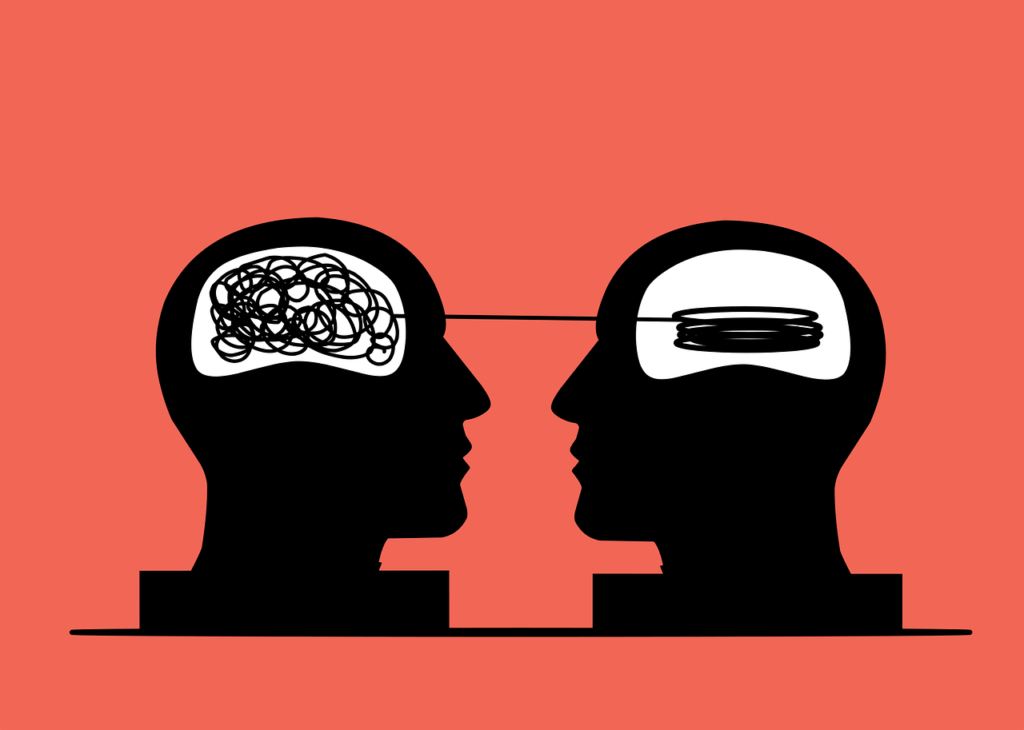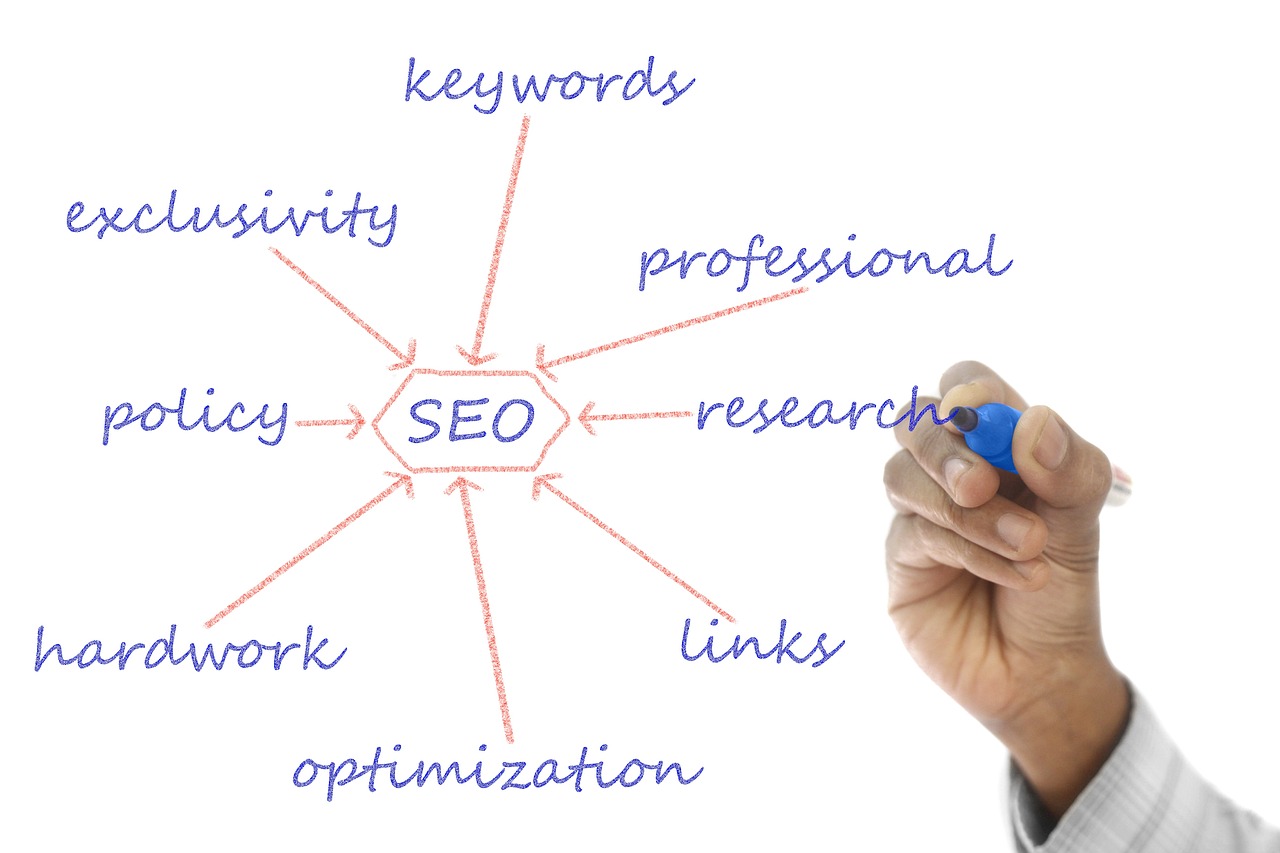This Article has been revised, edited and added to, by Poulomi Chakraborty.
- Understanding SEO for Mental Health Services
- On-Page SEO vs. Off-Page SEO: A Comparative Analysis
- Local SEO for Mental Health Services
- Content Marketing for Mental Health SEO
- Analytics and Monitoring
- Advanced SEO Strategies for Mental Health Services
- Integrating SEO with Other Marketing Strategies
- Examples of Successful Mental Health SEO
- Leveraging Social Media for Mental Health SEO
- Enhancing User Experience (UX) for Mental Health Websites
- Building Relationships with Influencers and Industry Experts
- Integrating SEO with Other Marketing Strategies
- Monitoring and Adapting to Algorithm Changes
- Conclusion
In today’s digital age, mental health services have become more accessible than ever, thanks to the internet. However, with increased accessibility comes increased competition. For mental health professionals and organizations, having a strong online presence is crucial to reaching those in need. SEO (Search Engine Optimization) for mental health services involves optimizing your website to improve visibility in search engine results, attract more visitors, and ultimately, help more people. This guide will explore the essential strategies for effectively implementing SEO for mental health services.
Understanding SEO for Mental Health Services

SEO for mental health services involves various techniques to improve your website’s ranking on search engines like Google. These techniques can be broadly categorized into on-page SEO and off-page SEO. Understanding these categories and how they differ is crucial for developing a comprehensive SEO strategy.
The Importance of Keyword Research
Keyword research is the foundation of any successful SEO strategy. For mental health services, it’s vital to identify the specific terms and phrases that potential clients use when searching for help online. Tools like Google Keyword Planner, Ahrefs, and SEMrush can help you discover relevant keywords and understand their search volume and competition.
When conducting keyword research, consider the different types of services you offer, such as therapy, counseling, or psychiatric care. Include both broad and long-tail keywords to capture a wide range of search queries. For example, while “mental health services” is a broad keyword, “online therapy for anxiety” is a long-tail keyword that targets a specific need.
On-Page SEO for Mental Health Websites
On-page SEO involves optimizing individual pages on your website to rank higher in search engine results. This means ensuring that your content, structure, and technical elements are all optimized to provide the best user experience and meet search engine guidelines.
Content Optimization
High-quality, informative content is essential for SEO. Your website should provide detailed information about the mental health services you offer, including the types of therapy, the conditions treated, and the qualifications of your professionals. Use the keywords identified during your research naturally within your content, ensuring it reads smoothly and provides value to your audience.
In addition to service pages, consider creating a blog where you can publish articles on relevant mental health topics, coping strategies, and patient success stories. This not only helps with SEO but also establishes your organization as an authority in mental health.
Technical SEO
Technical SEO refers to optimizing the technical aspects of your website to improve its performance and make it easier for search engines to crawl and index your pages. Key elements of technical SEO for mental health websites include ensuring your site is mobile-friendly, improving page load speeds, and using secure HTTPS connections.
A mobile-friendly design is crucial, as many users will access your site from their smartphones or tablets. Ensure that your site’s layout adapts to different screen sizes and that all features, such as appointment booking forms and informational resources, work seamlessly on mobile devices.
Off-Page SEO for Mental Health Services
Off-page SEO involves actions taken outside of your website to improve its authority and search engine rankings. For mental health services, building a strong online presence through backlinks, social media engagement, and positive reviews is essential.
Building Backlinks
Backlinks are links from other websites to your site and are a significant factor in determining your site’s authority and ranking. Focus on obtaining high-quality backlinks from reputable mental health websites, directories, and authoritative blogs. Guest blogging on related websites and participating in online forums can also help you earn valuable backlinks.
Social Media Engagement
Social media platforms are powerful tools for promoting your mental health services and driving traffic to your website. Regularly share informative content, engage with your audience, and participate in relevant conversations to increase your visibility and build a loyal following. Positive interactions on social media can also lead to increased brand awareness and more client inquiries.
Online Reviews
Positive reviews on platforms like Google My Business, Healthgrades, and Yelp can significantly impact your online reputation and SEO. Encourage satisfied clients to leave reviews and respond to them promptly, addressing any concerns professionally. A strong online reputation builds trust with potential clients and can improve your local search rankings.
On-Page SEO vs. Off-Page SEO: A Comparative Analysis
Understanding the differences between on-page and off-page SEO is crucial for effectively optimizing your mental health website. Both strategies play complementary roles in improving your search engine rankings and driving organic traffic, but they focus on different aspects of your online presence.
On-Page SEO
On-page SEO focuses on optimizing the elements within your website that directly impact search engine rankings. This includes content creation, keyword usage, meta tags, URL structure, and technical elements like page speed and mobile-friendliness.
Content optimization is a core component of on-page SEO. For mental health services, this means creating detailed, informative content that addresses the needs and concerns of your target audience. Incorporating relevant keywords naturally within your content helps search engines understand the context and relevance of your pages.
Meta tags, including title tags and meta descriptions, are also important for on-page SEO. These tags provide brief summaries of your pages and appear in search engine results. Optimizing them with keywords and compelling descriptions can improve your click-through rates.
Technical SEO ensures that your website is easy to navigate and performs well on different devices. This involves optimizing page load speeds, ensuring mobile compatibility, and using secure HTTPS connections. A technically sound website provides a better user experience and is more likely to rank higher in search results.
Off-Page SEO
Off-page SEO focuses on actions taken outside of your website to improve its authority and search engine rankings. This includes building backlinks, engaging on social media, and managing online reviews.
Backlinks from reputable websites signal to search engines that your site is a trusted source of information. Earning high-quality backlinks involves creating valuable content that others want to link to, guest blogging, and participating in online forums and discussions.
Social media engagement helps increase your visibility and drive traffic to your website. By sharing informative content, engaging with your audience, and participating in relevant conversations, you can build a loyal following and enhance your online presence.
Online reviews play a significant role in off-page SEO. Positive reviews on platforms like Google My Business and Healthgrades not only improve your reputation but also impact your local search rankings. Encourage satisfied clients to leave reviews and respond to them promptly to build trust and credibility.
Local SEO for Mental Health Services

Local SEO is crucial for mental health services, especially since many clients search for providers within their geographical area. Optimizing for local search ensures that your practice appears prominently in search results for users in your region, driving more local traffic and inquiries.
Optimizing Your Google My Business Listing
Google My Business (GMB) is a powerful tool for local SEO. Start by claiming and verifying your GMB listing if you haven’t already. Ensure all information is accurate and complete, including your business name, address, phone number, website, and business hours. Add high-quality photos of your office, therapists, and any key staff members to make your listing more engaging.
Encourage clients to leave reviews on your GMB listing. Positive reviews enhance your reputation and can improve your rankings in local search results. Respond to reviews promptly, thanking clients for their feedback and addressing any concerns professionally.
Regularly update your GMB profile with new photos, posts about services or events, and any changes to your business information to keep it current and relevant.
Incorporating Local Keywords
Using local keywords throughout your website is essential for local SEO. These are phrases that include your location, such as “mental health services in [city]” or “therapy in [region].” Incorporate these keywords naturally into your content, including service pages, therapist bios, blog posts, and meta descriptions.
Creating location-specific pages can also be beneficial if your practice serves multiple areas. Each page should have unique content tailored to the needs and queries of clients in that location. This approach helps search engines understand the geographic areas you serve and improves your visibility in local search results.
Building Local Citations
Local citations are mentions of your business’s name, address, and phone number (NAP) on other websites, such as local directories, healthcare directories, and review sites. Consistency is key, so ensure your NAP information is the same across all listings. Inconsistencies can confuse search engines and negatively impact your local search rankings.
Ensure your practice is listed on local business directories, mental health directories, and relevant review sites. This not only provides valuable backlinks but also helps potential clients find your practice when searching for local mental health services. Encourage clients to leave reviews on these platforms to enhance your online reputation and attract more local traffic.
Content Marketing for Mental Health SEO
Content marketing is a powerful strategy for SEO, helping you attract and engage potential clients, establish your authority in mental health, and improve your search engine rankings.
Developing a Content Strategy
A well-planned content strategy is essential for success. Start by identifying your target audience and their needs. Understand what questions they have, what information they are seeking, and what challenges they face regarding mental health. This will help you create content that resonates with them and provides real value.
Create a content calendar to plan and organize your content efforts. Include a mix of blog posts, therapist insights, mental health tips, and patient success stories to keep your audience engaged. Aim to publish content regularly, but prioritize quality over quantity. Each piece of content should be well-researched, informative, and optimized for search engines.
Creating Engaging Blog Posts
Blogging is a cornerstone of content marketing and an excellent way to improve your SEO. Write blog posts that address common mental health concerns, explain different types of therapy, and offer coping strategies for various conditions. Use clear, simple language and avoid technical jargon to ensure your content is accessible to a broad audience.
Incorporate relevant keywords naturally throughout your posts, especially in the titles, headings, and first paragraph. Avoid keyword stuffing, as this can negatively impact your rankings and readability. Include internal links to other relevant pages on your site to improve navigation and keep visitors engaged longer.
Utilizing Video Content
Video content is highly engaging and can effectively convey complex information in a simple, easy-to-understand format. Create videos that explain the benefits of therapy, provide virtual tours of your office, and showcase patient testimonials. Ensure your videos are high-quality and professional, as this reflects on the overall image of your practice.
Optimize your videos for SEO by including relevant keywords in the titles, descriptions, and tags. Transcribe your videos and include the text on your website to make the content accessible to search engines and users who prefer reading. Share your videos on platforms like YouTube, social media, and your website to reach a wider audience.
Leveraging Infographics
Infographics are a visually appealing way to present information and can be highly shareable, increasing your reach and earning valuable backlinks. Use infographics to explain different mental health conditions, illustrate therapy techniques, or provide statistical information about mental health.
Ensure your infographics are well-designed and easy to understand. Include your logo and website URL to promote your practice when the infographic is shared on other sites or social media. Publish infographics on your blog and encourage other websites to share them, linking back to your site.
Analytics and Monitoring

Monitoring your SEO efforts is crucial to understand what’s working and where you need to make improvements. Use various analytics and monitoring tools to track your website’s performance and gain insights into your audience’s behavior.
Google Analytics
Google Analytics is a powerful tool that provides comprehensive data about your website’s traffic and user behavior. By setting up and configuring Google Analytics, you can track important metrics such as organic traffic, bounce rates, average session duration, and conversion rates.
Set up goals and conversions to measure the success of your mental health SEO strategies. Goals can be actions such as appointment bookings, form submissions, or newsletter sign-ups. Tracking these conversions allows you to understand how well your website is driving desired actions and which pages or keywords are most effective.
Google Search Console
Google Search Console is another essential tool for monitoring and improving your website’s SEO. It provides valuable data about your site’s performance in Google search results, including keyword rankings, click-through rates, and indexing status.
Use Google Search Console to track the performance of your targeted keywords. Identify which keywords are driving the most traffic and which ones need improvement. Adjust your content and SEO strategies based on this data to optimize your rankings.
Other SEO Tools
In addition to Google Analytics and Google Search Console, there are several other tools that can help you monitor and improve your mental health SEO efforts. Tools like Ahrefs and SEMrush provide detailed data on keyword rankings, backlinks, competitor analysis, and more. Use these tools to perform in-depth SEO audits, identify new keyword opportunities, and monitor your backlink profile.
Regularly reviewing your analytics data allows you to make data-driven decisions and refine your SEO strategies. Stay updated with the latest SEO trends and algorithm changes to ensure your strategies remain effective.

Advanced SEO Strategies for Mental Health Services
To stay ahead in the competitive landscape of mental health services, leveraging advanced SEO strategies can make a significant difference. These strategies involve more technical aspects and require a deeper understanding of SEO principles, but they can greatly enhance your website’s performance and search engine rankings.
Voice Search Optimization
With the rise of virtual assistants like Siri, Alexa, and Google Assistant, voice search is becoming increasingly popular. Optimizing your website for voice search can help you reach a broader audience and improve your search engine rankings.
Understanding Voice Search Behavior
Voice search queries tend to be longer and more conversational than traditional text searches. People often use natural language and ask specific questions when using voice search. For example, instead of typing “mental health services,” a voice search user might ask, “What are the best mental health services near me?” Understanding this behavior is crucial for optimizing your content.
Creating Conversational Content
To optimize for voice search, create content that mimics natural speech patterns. This means using a conversational tone and addressing common questions directly. Incorporate long-tail keywords and question-based phrases naturally within your content. For example, you might write a blog post titled “How to Find the Right Therapist for Anxiety” and include subheadings that answer specific questions potential clients might have.
Implementing FAQ Pages
Frequently Asked Questions (FAQ) pages are highly effective for voice search optimization. Compile a list of common questions related to your mental health services and provide clear, concise answers. Use structured data markup to help search engines understand the content of your FAQ pages, increasing the likelihood that your answers will be featured in voice search results.
Leveraging AI and Machine Learning in SEO
Artificial intelligence (AI) and machine learning are transforming the way we approach SEO. These technologies offer new methods for analyzing data, predicting trends, and optimizing content, providing a competitive edge in the digital landscape.
Using AI for Keyword Research
AI-powered tools can process vast amounts of data to identify the most relevant keywords for your mental health services. These tools analyze search trends, user behavior, and keyword difficulty to provide insights that help you choose the best keywords for your content. By leveraging AI for keyword research, you can target the right audience more effectively.
Personalizing Content with Machine Learning
Machine learning algorithms can analyze user behavior and preferences to deliver personalized content. For example, by understanding which types of content resonate most with different segments of your audience, you can tailor your content strategy to meet their needs. This personalization can improve user engagement, reduce bounce rates, and enhance your SEO efforts.
Predicting SEO Trends
AI and machine learning can help predict future SEO trends by analyzing patterns in search data. These technologies can identify emerging topics, changes in user behavior, and shifts in search algorithms. By proactively adapting your SEO strategy based on these predictions, you can stay ahead of the competition and maintain a strong online presence.
Schema Markup and Structured Data
Schema markup and structured data are powerful tools that help search engines understand the content of your website better. Implementing schema markup can enhance your search results with rich snippets, which display additional information directly in search results and can significantly improve your click-through rates.
Implementing Schema Markup
Schema markup is a form of microdata that you can add to your website’s HTML to provide additional context to search engines about your content. For mental health services, this could include information about your services, therapists, business details, and patient reviews.
Mental Health Service Schema
Use schema markup specifically designed for healthcare providers and mental health services. This can include details like the types of therapy offered, conditions treated, therapist qualifications, and office hours. Providing this structured data helps search engines display your information more accurately in search results.
FAQ Schema
Adding FAQ schema to your website can enhance your search results by displaying questions and answers directly in search results. This is particularly useful for mental health services, as potential clients often have many questions about therapy options, conditions treated, and what to expect from sessions. By marking up your FAQ content with schema, you can provide clear, concise answers that are easily accessible to users and search engines.
Enhancing User Experience (UX) for SEO
User experience (UX) is a critical factor in SEO, as search engines prioritize websites that offer a positive experience to users. Ensuring that your mental health website is user-friendly, fast-loading, and easy to navigate can improve your search rankings and keep visitors engaged.
Improving Site Navigation
A well-organized website with intuitive navigation helps users find the information they need quickly and easily. Ensure that your menu is clear, concise, and includes links to all important pages. Use descriptive labels and organize content logically. Implementing a search feature can also enhance navigation, allowing users to quickly locate specific information.
Optimizing Page Load Speed
Page load speed is a crucial aspect of user experience. Slow-loading pages can frustrate users and lead to higher bounce rates, negatively impacting your SEO. Optimize images, use efficient coding practices, and leverage browser caching to improve page load times. Regularly test your website’s speed using tools like Google PageSpeed Insights and make necessary adjustments.
Ensuring Mobile Friendliness
With the majority of users accessing websites on mobile devices, ensuring your website is mobile-friendly is essential. Implement a responsive design that adapts to different screen sizes and provides a seamless experience across devices. Test your website on various mobile devices to ensure that all elements are accessible and functioning correctly. Prioritizing mobile optimization can significantly improve user satisfaction and search rankings.
Integrating SEO with Other Marketing Strategies

SEO should not be an isolated effort but rather integrated with your overall marketing strategy. Combining SEO with other digital marketing tactics, such as content marketing, social media marketing, email marketing, and paid advertising, can amplify your results and create a cohesive online presence.
Aligning Content Marketing with SEO
Ensure that your content marketing efforts are aligned with your SEO strategy. Conduct keyword research to identify topics that resonate with your audience and create high-quality content optimized for search engines. Promote your content across multiple channels to increase its reach and attract more organic traffic to your website.
Utilizing Email Marketing
Email marketing can support your SEO efforts by driving traffic to your website and keeping your audience engaged. Use email newsletters to share your latest blog posts, mental health tips, and service updates. Include clear calls-to-action (CTAs) that encourage recipients to visit your website and explore your content.
Running Paid Advertising Campaigns
Paid advertising, such as Google Ads and social media ads, can complement your SEO efforts by driving targeted traffic to your website. Use paid campaigns to promote high-performing content, new service offerings, and special promotions. Monitor the performance of your ads and adjust your strategy to maximize your return on investment (ROI).
Examples of Successful Mental Health SEO
Examining case studies and real-life examples of successful mental health SEO implementations can provide valuable insights and inspiration for your own strategies. Here, we’ll explore a few examples of mental health services that have effectively used SEO to improve their online presence and attract more clients.
Example 1: Enhancing Local Visibility
A small mental health practice in a competitive urban area optimized their Google My Business profile, incorporated local keywords into their website content, and actively engaged with clients through online reviews. By focusing on local SEO strategies, they significantly improved their local search rankings, leading to a 50% increase in organic traffic and a 30% increase in new client inquiries.
Example 2: Content Marketing Success
A mid-sized mental health organization focused on content marketing to educate their audience and build trust. They created a blog with articles on mental health topics, therapy techniques, and coping strategies. By conducting thorough keyword research and optimizing their content for SEO, they were able to rank highly for several competitive keywords, resulting in a 40% increase in website traffic and higher client engagement.
Example 3: Advanced Link Building
A large mental health network implemented advanced link building techniques to enhance their website’s authority and search rankings. They used the Skyscraper Technique to create high-quality, comprehensive content and promoted it to relevant websites to earn backlinks. They also engaged in guest blogging and participated in online mental health forums to build relationships and gain valuable backlinks. These efforts resulted in a significant increase in their domain authority and a 60% growth in organic search traffic.
Example 4: Mobile Optimization
A rural mental health service provider focused on mobile optimization to cater to the increasing number of clients accessing their services via smartphones and tablets. They implemented a responsive design, optimized page speed, and used AMP for faster loading times on mobile devices. These changes improved their mobile user experience and search rankings, leading to a 70% increase in mobile traffic and higher engagement rates from mobile users.
Leveraging Social Media for Mental Health SEO
Social media is an integral part of a comprehensive SEO strategy. While social media signals themselves are not direct ranking factors, having an active presence can drive traffic to your website, increase brand awareness, and indirectly improve your SEO efforts. Engaging with your audience on platforms like Facebook, Twitter, Instagram, and LinkedIn can enhance your mental health service’s visibility and foster a supportive community.
Creating Shareable Content
Creating content that is highly shareable is key to successful social media marketing. This includes posting informative articles, engaging videos, client testimonials, and mental health tips. Make sure your content addresses the needs and interests of your audience. By encouraging social sharing, you not only increase your reach but can also generate valuable backlinks, which are important for SEO.
Engaging with Your Audience
Active engagement with your audience is crucial for building a strong online presence. Respond promptly to comments and messages, participate in conversations, and show appreciation for your followers. Engaging with your audience builds trust and encourages more people to visit your website. Hosting live Q&A sessions, running mental health awareness campaigns, and sharing client success stories are effective ways to interact with your audience and boost engagement.
Utilizing Social Media Advertising
Paid social media advertising can complement your SEO efforts by driving targeted traffic to your website. Platforms like Facebook and Instagram offer advanced targeting options, allowing you to reach potential clients based on their location, interests, and behaviors. Running targeted ad campaigns can increase your visibility, attract new clients, and enhance your overall marketing strategy.
Enhancing User Experience (UX) for Mental Health Websites

User experience (UX) is a critical factor in SEO, as search engines prioritize websites that offer a positive experience to users. Ensuring that your mental health website is user-friendly, fast-loading, and easy to navigate can improve your search rankings and keep visitors engaged.
Improving Site Navigation
A well-organized website with intuitive navigation helps users find the information they need quickly and easily. Ensure that your menu is clear, concise, and includes links to all important pages. Use descriptive labels and organize content logically. Implementing a search feature can also enhance navigation, allowing users to quickly locate specific information.
Optimizing Page Load Speed
Page load speed is a crucial aspect of user experience. Slow-loading pages can frustrate users and lead to higher bounce rates, negatively impacting your SEO. Optimize images, use efficient coding practices, and leverage browser caching to improve page load times. Regularly test your website’s speed using tools like Google PageSpeed Insights and make necessary adjustments.
Ensuring Mobile Friendliness
With the majority of users accessing websites on mobile devices, ensuring your website is mobile-friendly is essential. Implement a responsive design that adapts to different screen sizes and provides a seamless experience across devices. Test your website on various mobile devices to ensure that all elements are accessible and functioning correctly. Prioritizing mobile optimization can significantly improve user satisfaction and search rankings.
Building Relationships with Influencers and Industry Experts
Collaborating with influencers and industry experts can significantly boost your SEO efforts. These partnerships can help you reach a wider audience, gain valuable backlinks, and enhance your credibility in the mental health field.
Identifying Relevant Influencers
Identify influencers and industry experts who have a significant following in the mental health sector. Look for individuals who align with your brand values and have an engaged audience that would be interested in your services. Tools like BuzzSumo and Followerwonk can help you find relevant influencers in your niche.
Establishing Partnerships
Reach out to potential influencers and industry experts with a personalized message explaining why you think they would be a good fit for a partnership. Offer them something of value, such as free services, exclusive content, or financial compensation, in exchange for promoting your mental health services. Building genuine relationships with influencers can lead to long-term collaborations that benefit both parties.
Leveraging Influencer Content
Encourage influencers to create content that showcases your services, such as reviews, interviews, and mental health tips. Share this content on your social media channels, website, and email newsletters to maximize its reach. Influencer content can provide social proof, increase brand awareness, and drive traffic to your website.
Integrating SEO with Other Marketing Strategies
SEO should not be an isolated effort but rather integrated with your overall marketing strategy. Combining SEO with other digital marketing tactics, such as content marketing, social media marketing, email marketing, and paid advertising, can amplify your results and create a cohesive online presence.
Aligning Content Marketing with SEO
Ensure that your content marketing efforts are aligned with your SEO strategy. Conduct keyword research to identify topics that resonate with your audience and create high-quality content optimized for search engines. Promote your content across multiple channels to increase its reach and attract more organic traffic to your website.
Utilizing Email Marketing
Email marketing can support your SEO efforts by driving traffic to your website and keeping your audience engaged. Use email newsletters to share your latest blog posts, mental health tips, and service updates. Include clear calls-to-action (CTAs) that encourage recipients to visit your website and explore your content.
Running Paid Advertising Campaigns
Paid advertising, such as Google Ads and social media ads, can complement your SEO efforts by driving targeted traffic to your website. Use paid campaigns to promote high-performing content, new service offerings, and special promotions. Monitor the performance of your ads and adjust your strategy to maximize your return on investment (ROI).
Monitoring and Adapting to Algorithm Changes

Search engine algorithms are constantly evolving, and staying informed about these changes is crucial for maintaining and improving your SEO performance. Regularly monitoring algorithm updates and adapting your strategies accordingly can help you stay competitive and achieve long-term success.
Keeping Up with SEO News
Follow reputable SEO blogs, industry news websites, and thought leaders to stay updated on the latest algorithm changes and best practices. Websites like Search Engine Land, Moz, and Search Engine Journal provide valuable insights and analysis on SEO trends and updates. Participating in SEO forums and online communities can also help you stay informed and exchange ideas with other professionals.
Conducting Regular SEO Audits
Perform regular SEO audits to identify any issues and areas for improvement on your website. Use tools like Ahrefs, SEMrush, and Google Search Console to analyze your site’s performance, track keyword rankings, and monitor backlinks. Address any technical issues, update outdated content, and optimize new content to maintain and improve your rankings.
Adapting Your SEO Strategy
Based on your audit findings and the latest SEO trends, adapt your strategy to stay ahead of the competition. This might involve updating your keyword research, improving your content quality, enhancing your technical SEO, or focusing on new areas like voice search optimization. Continuously learning and adapting your strategies based on new information will help you stay competitive and achieve long-term success.
Conclusion
SEO for mental health services is a multifaceted approach that requires continuous effort, adaptation, and a deep understanding of both your audience and search engine algorithms. By implementing a comprehensive strategy that includes keyword research, content marketing, technical optimization, local SEO, voice search optimization, and leveraging AI and machine learning, you can significantly improve your online visibility and attract more clients to your mental health practice.
Staying informed about the latest trends and technologies in SEO is crucial for long-term success. By leveraging tools like Google Analytics, Google Search Console, and AI-powered SEO platforms, you can monitor your performance, make data-driven decisions, and refine your strategies to achieve the best results.
Ultimately, the key to successful SEO for mental health services is providing value to your audience through high-quality content, exceptional user experience, and a strong online presence. By focusing on these elements, you can build trust with potential clients, enhance your reputation, and grow your mental health practice in the digital age.
READ NEXT:
- Unlock the Secrets to Sky-High Rankings for Your Banking Website
- Keyword Research Basics for Financial Services SEO
- An Introduction to SEO for Financial Services
- Trust the Experts: SEO for Financial Advisers
- How to Dominate Google Rankings for Every Type of Loan Service



















Comments are closed.